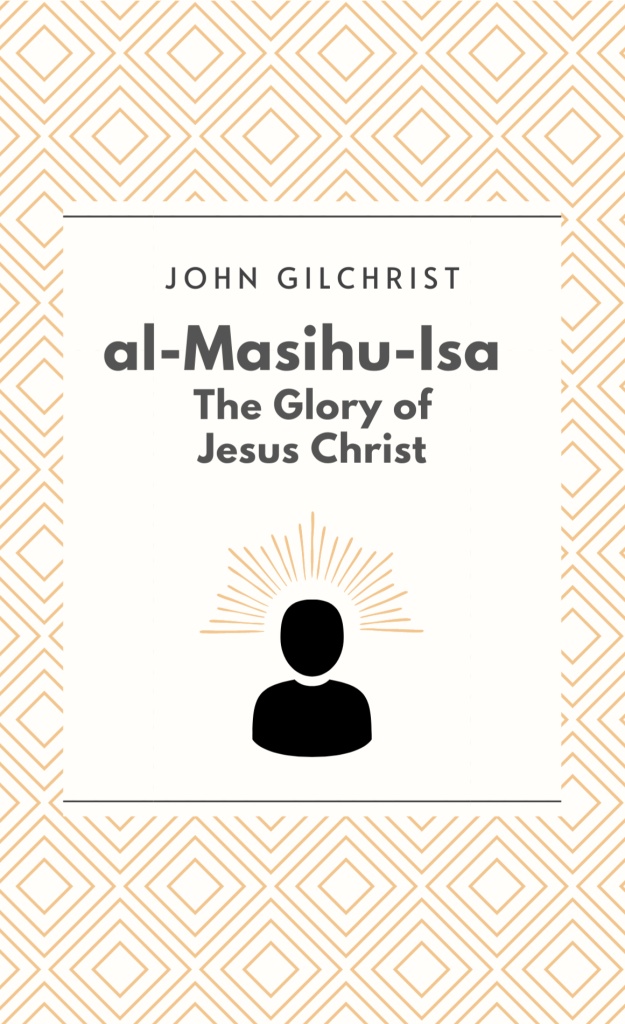Al-Masihu-Isa: The Messiah in the Qur'an
Al-Masihu-Isa: The Glory of Jesus the Messiah


Chapters
Islam, on the contrary, only accepts Jesus as a prophet like all the other prophets. In one passage he is joined with Abraham, Ishmael, Isaac, Jacob and Moses as simply one of the prophets (an-nabiyyin) between whom no distinction of any kind is made (Quran 2.136). In another verse he is said to have been no more than a servant (abd Quran 43.59) and in yet another as nothing more than a messenger (rasul - Quran 5.78). One would therefore expect to find the Qur'an denying that Jesus was the Messiah, especially as the Jews and Christians have always regarded the title as signifying more than prophethood and as Peter's testimony that Jesus was indeed the Messiah was intended to be in contrast with the opinion of the Jews that he was only one of the prophets sent by God.
It comes as a surprise, therefore, to find that the Qur'an openly admits that Jesus was the Messiah. He is often called in the Qur'an al-Masihu Isa - "the Messiah Jesus" (Quran 4.157, 171). The title al-Masih ("the Messiah") sometimes appears by itself (Quran 4.172) and on other occasions he is called al-Masihubnu Maryam ("the Messiah, son of Mary" - Quran 9.31), but on each of the eleven occasions where it appears the title al-Masih - the Messiah - is applied specifically to Jesus alone. The Qur'an even goes so far as to say that right in the beginning, when the angel Gabriel first appeared to Mary he deliberately stated that the name of her son was to be al-Masihu Isa (Quran 3.45). Islam thus joins Christianity in declaring Jesus to be the long-awaited Messiah promised to the Jews through the prophets of old.
Nevertheless, as said before, the Qur'an's acknowledgement that Jesus was indeed the Messiah comes as a surprise, for it denies that Jesus was anything more than a prophet, whereas the promises of God about the coming Messiah had made it plain that he would be far greater than a prophet. The Christian confession that Jesus is the Lord and Saviour of all men is thus consistent with the teachings of the former prophets that the coming Messiah would be the supreme man of history, far above all the prophets (2 Samuel 7:12-14). The Qur'an on the other hand, declares Maal-Masihubnu Maryama illa rasul - "the Messiah, son of Mary, was no more than an apostle" - like the other apostles who had passed away before him (Quran 5.78). Why, then, does the Qur'an also acknowledge that Jesus was the Messiah if it denies that he was anything more than a prophet?
It is significant to discover that, while the Qur'an unreservedly applies the title al-Masih to Jesus, it attempts no explanation of it. This is all the more surprising in view of the Jewish and Christian belief that the title is reserved to the specially-chosen one of God, one man alone who stands above all other men, prophets and apostles included. The declaration that the Messiah was only an apostle appears to be self-contradictory and the Qur'an's complete silence on the meaning of the title hardly serves to avoid this conclusion.
The Qur'an's suggestion that Jesus was only a prophet is not only clearly compromised by its own admission that he was indeed the Messiah, but the issue is intensified even further by the fact that it calls Jesus, without exception in every case where the title appears, al-Masih - the Messiah. The definite article positively distinguishes him from all the other prophets. Not only is no other prophet in the Qur'an called Messiah, but by describing Jesus as the Messiah, the Qur'an declares that the application of this title to anyone else would be quite inappropriate.
Not only does the Qur'an attempt no explanation of the meaning of this title but even great scholars in Muslim history like Zamakhshari and Baidawi admitted that it was not an original Arabic word. The average Muslim will be hard-pressed to venture a plausible explanation of this supreme title given to Jesus, al-Masih, based on the use of the word in the Qur'an, and consistent with the claim that he was in no way different to the other prophets who went before him. It is therefore quite clear that we shall have to turn to the Bible if we are to find the true meaning of the title.